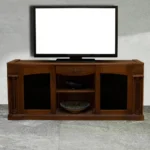Nomad life means living without a permanent home and moving from one place to another. In the past, nomads moved to find food, water, or better weather. Today, many nomadic groups still exist, and some choose Nomad Life on a Small Liveaboard in Southeast Asia for survival, adventure, or to maintain traditional lifestyles.
Today, nomad life has changed because of technology and travel. Modern nomads can work online, allowing them to live and travel freely without staying in one place. Some live in boats, vans, or small homes while exploring different parts of the world.
In Southeast Asia, many nomads live on boats or small islands, moving with the seasons. In America, nomads often travel in vans or RVs, exploring national parks and open spaces. Both groups enjoy freedom but face different challenges based on where they live.
Living as a Nomad on a Liveaboard
es, it is possible to live as a nomad on a small liveaboard. People who choose this lifestyle face unique challenges, like limited space and dealing with weather. However, it offers freedom and the chance to explore new places regularly.
Southeast Asia is a popular region for liveaboard nomads because it is affordable and beautiful. The cost of living is low, and the warm climate makes life on a boat easier. The region’s rich culture and stunning marine environment attract many travelers.
Living on a liveaboard brings many benefits, such as mobility and connection to nature. You can travel freely and wake up to beautiful views every day. This lifestyle helps people feel closer to the ocean and its peaceful surroundings.
Cost of Living as a Nomad
The cost of living as a nomad on a small boat in Southeast Asia depends on several things. You need to pay for boat maintenance, which can cost around $100 to $500 a month. Food, visas, and travel expenses can add up to around $500 to $1,000 each month, depending on your lifestyle.
Managing finances as a liveaboard nomad requires careful budgeting to avoid overspending. Many nomads work remotely to earn money, using the internet to take on jobs like writing or teaching. It’s important to set aside money for emergencies, boat repairs, and unexpected costs.
By creating a budget and saving wisely, liveaboard nomads can enjoy their lifestyle without worrying too much about money. Remote work allows them to live freely while exploring new places and managing their expenses.
Nomadic Communities and Connections
Nomadic Tribes and Communities
In Southeast Asia, traditional nomadic tribes like the Bajau, known as “sea gypsies,” live on the water. They travel from place to place in small boats, fishing, and trading to survive. Modern nomadic communities also exist here, often moving to find work or better living conditions.
Digital Nomads on Liveaboards
Digital nomads are people who work online while traveling, and some now live on boats called liveaboards. They choose this lifestyle because it lets them explore new places and stay connected to the internet. The liveaboards provide workspaces, internet access, and a unique experience of living on the water.
Connections and Support Systems
Nomadic communities, both traditional and digital, have their support systems to help them thrive. They rely on close-knit groups and connections with local people wherever they go. Online platforms also make it easier for digital nomads to find resources, share experiences, and stay connected with others.
Challenges of Nomad Life on a Liveaboard
Weather, Isolation, and Boat Maintenance
Living on a liveaboard has challenges like rough weather, which can make travel dangerous at sea. Being far from land can make people feel lonely and cut off from friends and family. Boat maintenance is hard work; keeping everything running smoothly needs a lot of time and effort.
Is Nomad Life Sustainable?
Nomad life on a liveaboard can be hard to sustain because it affects the environment. Boats use fuel and other resources that can hurt sea life and water quality. People also face emotional challenges like missing family, friends, and feeling homesick.
Balancing Challenges and Benefits
To make this lifestyle work, nomads need to find ways to handle these challenges. Some use eco-friendly practices to lower their impact on the environment. They also connect with other nomads to get support and share tips for living on the water.
Bottom Lines
The nomadic lifestyle isn’t for everyone. Before choosing to live on a boat, people should think about the challenges, like limited space and being far from home. They also need to consider the cost and whether they enjoy life on the water.
The future of liveaboard nomadism looks promising, especially in Southeast Asia. With its beautiful coastlines and a growing number of remote workers, more people are choosing this way of life. This trend might keep growing as technology makes it easier to work from anywhere.
Frequently Asked Questions (FAQs)
Q1. How do you become a nomad lifestyle?
To become a nomad, you decide to live in different places instead of staying in one spot. You can start by selling or storing your stuff and planning where you want to travel. Then, find a way to work from anywhere using a computer.
Q2. How much does it cost to live in a nomad lifestyle?
Living a nomad lifestyle can cost a little or a lot, depending on how you live. Some people camp or live cheaply, while others stay in nice places and spend more money. It’s important to budget so you don’t run out of money on the road.
Q3. How do nomads make a living?
Nomads make a living by doing jobs they can do from anywhere, like writing, teaching, or computer work. Some people work on farms or do part-time jobs in different places. They find ways to earn money that lets them keep moving.
Q4. How do you become a nomad?
To become a nomad, you start by deciding to live a life without staying in one place. You might travel from city to city, or even from country to country. You also need to find a job that lets you work from different locations.
Q5. What is the purpose of a nomad?
The purpose of being a nomad is to explore new places and enjoy a life of freedom. Nomads like the idea of seeing different cultures and making new friends. They don’t want to be tied down to one home or city.
Q6. What is the point of being a nomad?
The point of being a nomad is to have the freedom to travel and live anywhere you want. Nomads enjoy the adventure of seeing new places and learning new things. They love the idea of living life on their terms.









